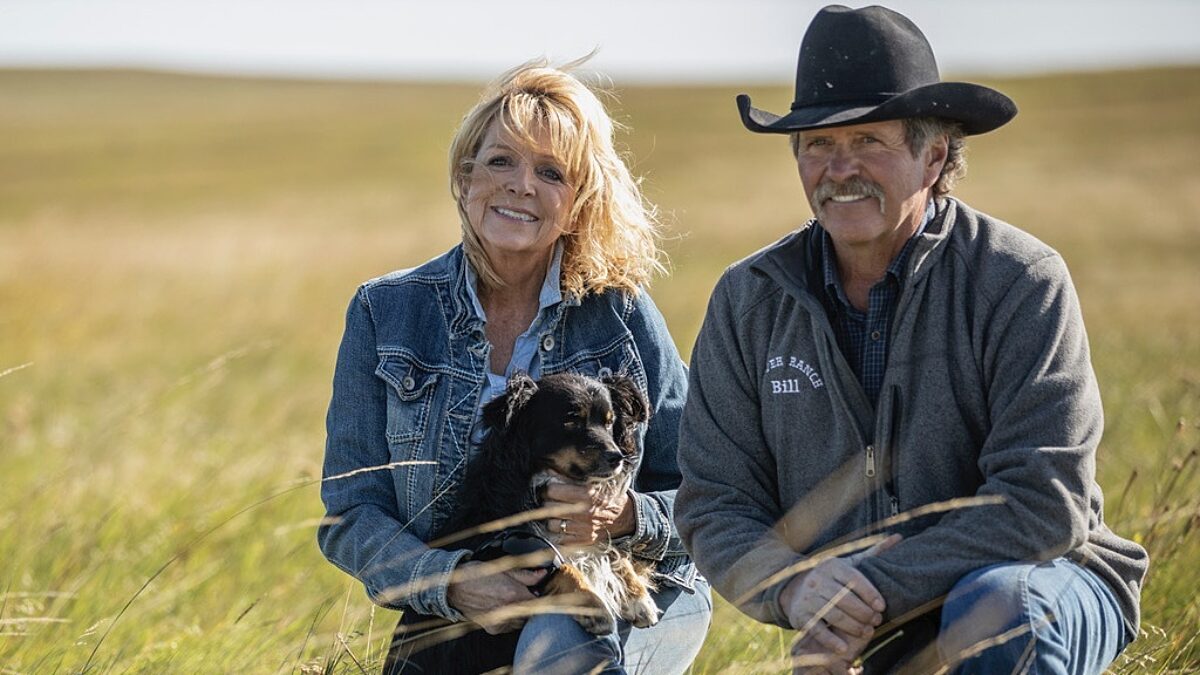South Dakota Ranch Family’s Commitment to Sustainability Spans Generations
ISSUES
SustainabilityAFBF Staff

Bill Slovek inherited more than some rolling acres of prairie from his father, Earl. He also inherited his legacy of careful land stewardship. Although his father didn’t have today’s water and infrastructure resources at his disposal, he did have the foresight to not overgraze the ranch.
With a longtime focus on sustainability, Bill and his wife, Pennie, Farm Bureau members, have instilled their conservation ethic in their adult children, who, along with their families, work on Slovek Ranch’s nearly 26,000 acres of grazing lands.
The Slovek family’s efforts earned them the 2023 South Dakota Leopold Conservation Award®.
Incorporating Sustainable Grazing Practices and Water Distribution
After Bill graduated moved home after college, he began buying land, developing water infrastructure and tearing out old fencing, all of which his father let him pursue with an open mind.
By 2001 Bill was installing cross fencing to divide pastures and experiment with rotational grazing. He kept a close eye on the changes that longer rest times and more pasture rotations brought to the grass and soil. Slowly but surely, he noticed better infiltration of rainwater, less erosion and healthier grasslands.
After seeing the initial results of his new grazing strategy, Bill developed more pastures and water infrastructure. Slovek Ranch now has 60 pastures and three herds moving across it, so at any given time 57 of their pastures are at rest.
A more intensive grazing rotation has resulted in pounds of forage continuing to increase on every pasture. Those gains are achieved by having adequate water distribution on the landscape to evenly spread out grazing and decrease unnecessary land disturbance. With assistance from USDA’s Natural Resources Conservation Service, the Sloveks installed almost 30 miles of water pipelines and 120 tire tanks.
Leaving behind enough of this year’s grass growth provides the necessary shade, protection and moisture to give next year’s grass growth an advantage. Slovek Ranch’s grazing system has produced an increase in the diversity of plant species across the landscape and provides feed and habitat for wildlife and threatened grassland birds and pollinators.
Growing the Business and Sharing Knowledge
Over the years, the intrinsic value and uniqueness of intact grasslands motivated Bill to become a dedicated student of the land in tandem with growing his family’s cattle business. To make room for the next generation, the Sloveks recently purchased a second ranch near Kadoka, where Brock and his wife, Ashley, raise 400 beef cows. The new ranch also features intact native grasslands, interspersed with badlands.
The Sloveks are regular hosts of tours centered around grazing management, and their efforts have earned them several conservation and beef industry accolades. Much of this is thanks to Bill’s ability to pay close attention to what worked, and maybe more importantly what didn’t.
Leopold Conservation Award
Given in honor of renowned conservationist Aldo Leopold, Sand County Foundation and national sponsor American Farmland Trust present the Leopold Conservation Award to farmers, ranchers and forestland owners in 27 states for land, water and wildlife habitat management.
In 2022, South Dakota farmers, ranchers and forestland owners were encouraged to apply (or be nominated) for the award. Applications were reviewed by an independent panel of agricultural and conservation leaders.
In South Dakota, the $10,000 award is presented annually by Sand County Foundation, American Farmland Trust, South Dakota Cattlemen’s Association, and the South Dakota Grassland Coalition.